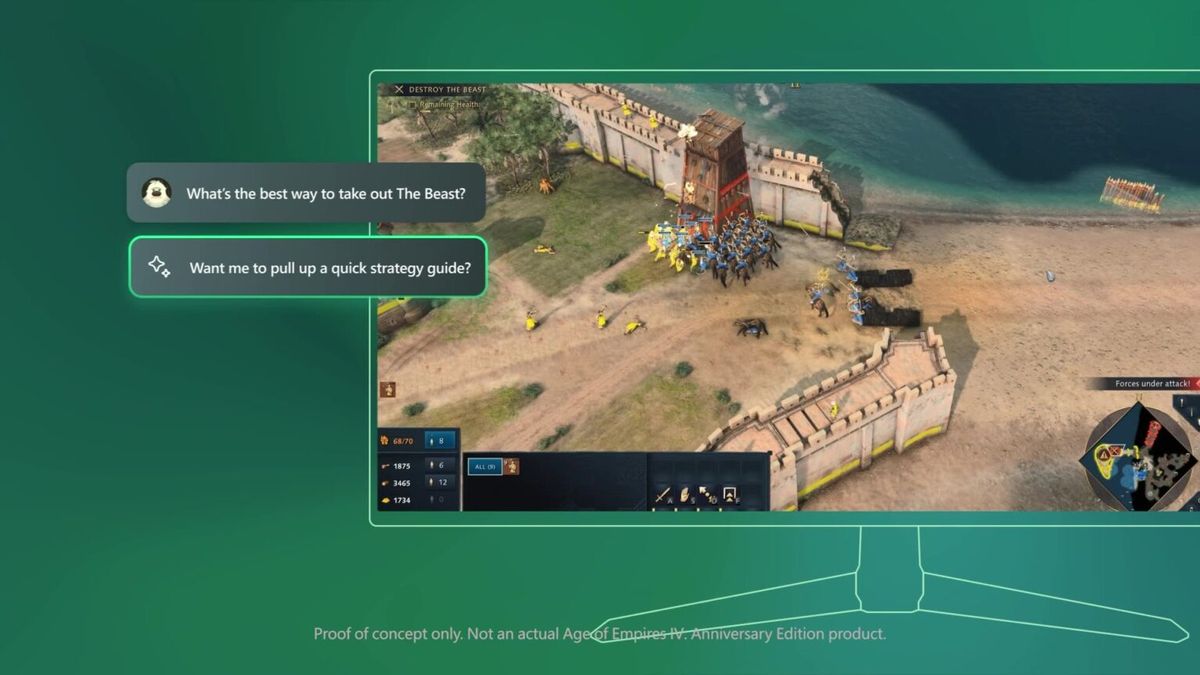AI-Powered Gaming Assistant Addresses Common Issues Encountered by Gamers

The Evolution of AI in Video Games
Artificial Intelligence (AI) has been integral to video games since their inception. In the early days, developers created computer-controlled opponents that players could compete against, adding an extra layer of challenge and enjoyment. Over the years, the role of AI in gaming has expanded significantly, especially in the current AI revolution where new innovations are enhancing gameplay experiences.
AI Enhancements in Game Graphics
Modern gaming has seen a surge in the use of AI technology, particularly in graphics enhancement. One notable example is Nvidia and its recent RTX 50-series GPUs. These GPUs utilize AI to improve graphic quality, resulting in more realistic visuals that greatly enhance the player’s experience. With real-time ray tracing and other advanced features, games can look more detailed and immersive than ever before.
Low-Effort Games and AI
While many developers focus on improving game quality, some have adopted a different approach by creating "low-effort" or "e-slop" games with minimal investment in design and programming. These games are usually sold for a fraction of the price in digital stores, targeting casual gamers looking for quick entertainment. This trend raises questions about the sustainability and impact of such games in the gaming community.
Microsoft’s Copilot for Gaming
In a bid to enhance player engagement, Microsoft has introduced an innovative tool called Copilot for Gaming. Announced recently, this AI assistant aims to provide support to gamers across various scenarios, acting as a helpful companion on both Xbox consoles and mobile apps.
Features of Copilot
Copilot’s functionalities include:
- Personalized Game Recommendations: It can analyze player behavior and suggest games accordingly.
- In-Game Assistance: Players can receive real-time help during challenging situations or puzzles.
- Social Connectivity: It keeps players linked with their online friends, facilitating easier communication.
- Game Progress Recaps: For players returning after a break, Copilot can summarize previously saved progress to help them jump right back in.
Microsoft plans to initially launch Copilot through its mobile app to gather player feedback. Over time, the tool’s capabilities are anticipated to evolve based on user interactions and preferences.
The Competitive Landscape: AI Gaming Assistants
Microsoft is not the only player in the AI gaming assistant arena. Other companies are also developing unique AI tools aimed at enhancing the gaming experience.
Nvidia’s Project G-Assist
Last year, Nvidia showcased Project G-Assist, an AI assistant designed to learn commonly asked questions by players and offer solutions. It also adjusts graphics settings based on a player’s hardware capabilities. However, as of now, it remains uncertain when this feature will be officially available on the Nvidia app.
Razer’s Project Ava
Razer is another company venturing into AI-powered gaming assistance with its Project Ava, presented at the Consumer Electronics Show (CES). More than just a companion, Ava serves as an intelligent coach, tailoring strategies for games like League of Legends based on individual play styles, thus providing personalized gameplay support.
Future Prospects in AI Gaming
With the excitement surrounding AI in gaming, the upcoming Game Developers Conference is expected to spotlight these advancements. Developers will demonstrate innovative ideas aimed at integrating AI into video gaming, potentially paving the way for new gaming experiences.
The trend of AI integration into gaming is likely to continue growing, shaping how players interact with games. By enhancing graphics and providing personalized support, AI is set to redefine gaming experiences for players of all ages and skill levels.






